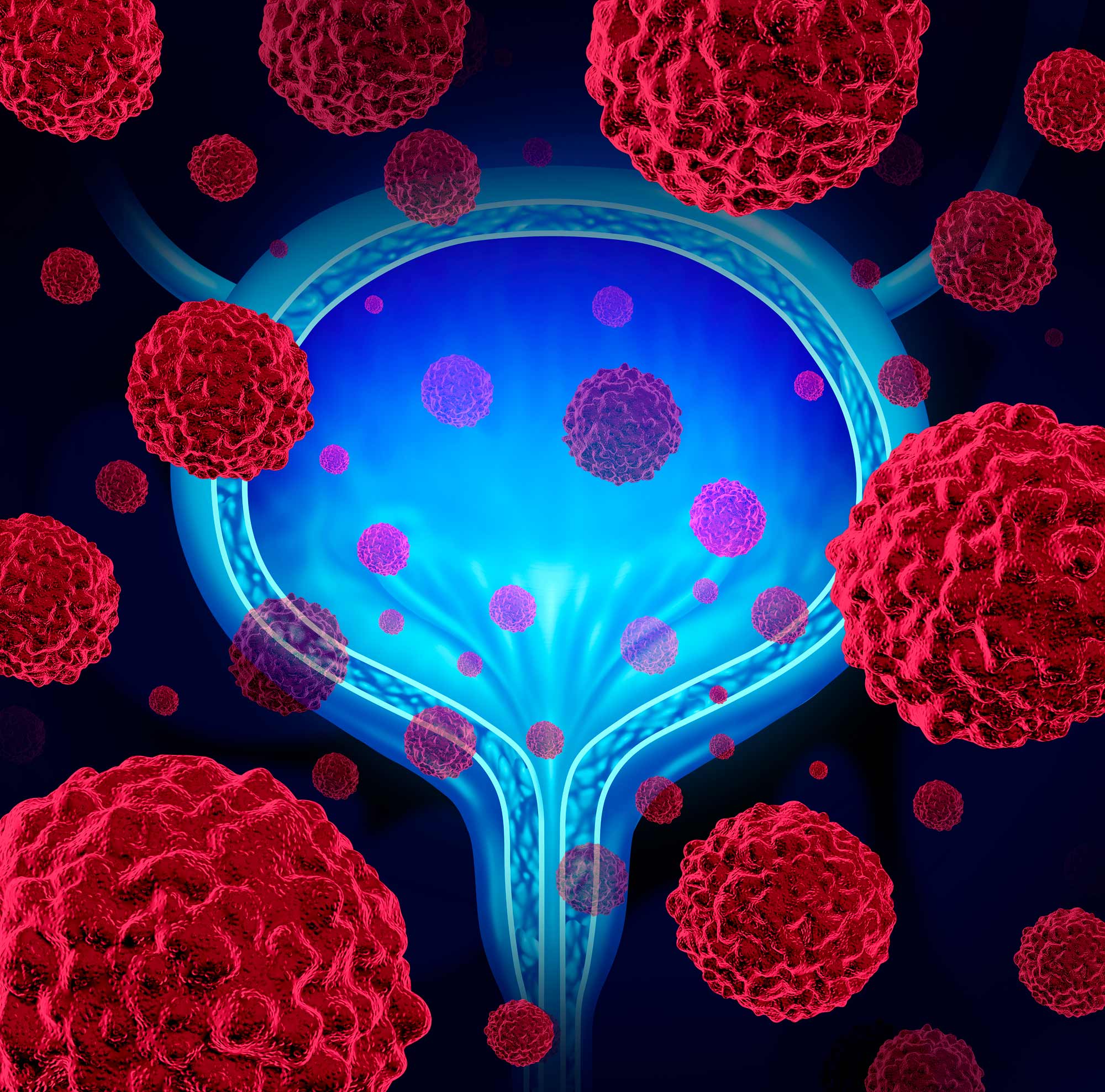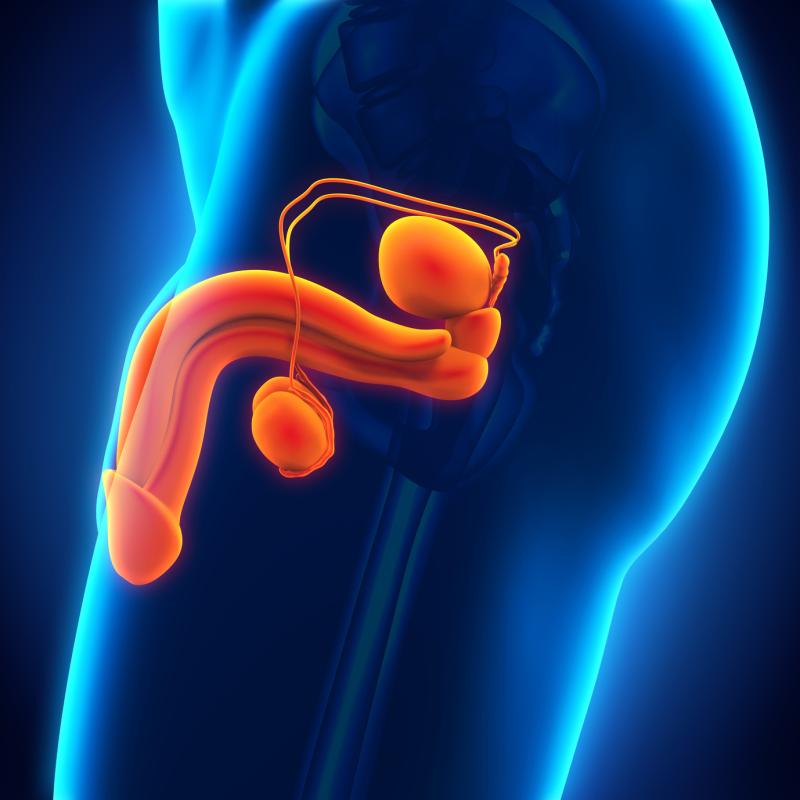Bladder Cancer Symptoms
Mesane duvarında anormal hücrelerin kontrolsüz çoğalmasıyla oluşur. Mesane kanseri, genellikle idrarla kan gelmesiyle belirti verir. Erkeklerde daha sık görülür. Sigara kullanımı en önemli risk faktörüdür. Erken evrede teşhis edilirse tedavi şansı yüksektir. Tanı için sistoskopi ve idrar testleri kullanılır. Tedavi cerrahi, kemoterapi veya radyoterapi ile yapılabilir.
What are the symptoms of bladder cancer?

İdrarda kan, en sık görülen belirtidir. Genellikle ağrısızdır. İdrar pembe, kırmızı ya da kola rengi gibi görünebilir. Bazen gözle görülmeyen (mikroskobik) kan da olabilir. Tekrar eden kanama, mesane kanseri açısından uyarıcı olabilir. İdrar yaparken yanma hissi ya da keskin bir ağrı belirtisi olabilir. Bu durum, sıklıkla enfeksiyonla karıştırılsa da uzun süre geçmeyen şikayetlerde mutlaka değerlendirilmelidir. Normalden daha sık idrara çıkma isteği olabilir. Bu durum, gece boyunca da devam edebilir ve kişinin yaşam kalitesini olumsuz etkiler. İdrar yapma isteği ani ve çok güçlü olabilir.
Tuvalete yetişememe hissi ya da idrarı tutamama da bu duruma eşlik edebilir. İdrar yaparken akışın yavaşlaması, kesik kesik gelmesi veya zorlanma hissi oluşabilir. Bu durum tümörün mesanedeki yerleşimiyle ilgili olabilir. Alt karın bölgesinde ya da kasıklarda hissedilen ağrı mesane kanseri ilerledikçe görülebilir. Ağrı, genellikle künt ve baskı tarzındadır. bladder cancer ileri evrelerde idrar yollarını ya da böbrekleri etkileyebilir. Bu durumda bel bölgesinde tek taraflı ya da çift taraflı ağrı gelişebilir. Kanser ilerledikçe sistemik belirtiler de ortaya çıkabilir. İştahsızlık, açıklanamayan kilo kaybı ve halsizlik, vücudun genel durumunu etkileyen belirtilerdir.
İleri evrelerde tümörün vücuda yayılması ve bağışıklık sisteminin zorlanması nedeniyle sürekli yorgunluk hissedilebilir. Kanser ilerlediğinde lenfatik sistem etkilenebilir. Bu da özellikle bacaklarda ya da ayaklarda ödem oluşmasına yol açabilir. Bu belirtiler başka hastalıklarda da görülebilir. Ancak özellikle idrarda kan fark edilmesi durumunda, zaman kaybetmeden bir üroloji uzmanına başvurmak önemlidir. Erken tanı, tedavide başarı şansını artırır.
Mesane Kanseri Neden Olur?
Sigara içmek, en önemli nedenlerinden biridir. Tütün dumanındaki kimyasal maddeler vücutta parçalanarak idrarla atılır ve bu maddeler mesane duvarıyla temas ettiğinde hücrelerde hasara yol açabilir. Sigara içen kişilerin mesane kanserine yakalanma riski içmeyenlere göre 2-3 kat daha fazladır. Boyalar, plastik, lastik, deri işleme ve tekstil gibi sektörlerde kullanılan bazı endüstriyel kimyasallar bladder cancer riskini artırabilir. Özellikle “aromatik aminler” adı verilen kimyasallar bu konuda suçlanmaktadır. Uzun yıllar bu tür maddelere maruz kalan kişilerde risk belirgin şekilde artar.
Sık idrar yolu enfeksiyonları, mesanede uzun süreli sonda kullanımı veya bazı parazitik enfeksiyonlar (örneğin Schistosoma haematobium paraziti) mesane duvarını tahriş edebilir. Bu durum, hücrelerin zamanla anormal hale gelmesine neden olabilir. Genellikle 55 yaş üzeri bireylerde daha sık görülür. Erkekler, kadınlara göre bu kansere 3-4 kat daha fazla yakalanmaktadır. Bu farkın nedeni sigara ve kimyasal maddeye maruz kalma oranlarının erkeklerde daha yüksek olmasıdır. Bazı insanlarda genetik yatkınlık nedeniyle mesane kanseri riski artabilir. Ailede mesane kanseri öyküsü olan kişilerde risk bir miktar daha fazladır. Ayrıca bazı genetik mutasyonlar da hücrelerin kanserleşmesini kolaylaştırabilir.
Kanser tedavisinde kullanılan bazı kemoterapi ilaçları (örneğin siklofosfamid) ve geçmişte radyoterapi görmüş olmak riski artırabilir. Ayrıca diyabet tedavisinde uzun süre kullanılan bazı ilaçlar da şüpheli risk faktörleri arasında yer alır. Arsenik gibi bazı kimyasalların içme suyunda yüksek oranda bulunması riski artırabilir. Bu durum özellikle sanayi atıkları nedeniyle yeraltı suları kirlenmiş bölgelerde yaşayan kişiler için geçerlidir. Kırmızı etin aşırı tüketimi, liften fakir beslenme ve yetersiz sıvı alımı da dolaylı olarak bladder cancer riskine katkı sağlayabilir.
Çünkü bu alışkanlıklar mesanede toksik maddelerin daha uzun süre kalmasına neden olabilir. Mesanede taş oluşumu veya idrarın sürekli olarak tam boşaltılamaması mesane duvarını tahriş edebilir. Bu uzun süreli tahrişler, kansere zemin hazırlayabilir. Sonuç olarak, çoğunlukla çevresel ve yaşam tarzı faktörleriyle ilişkilidir. Özellikle sigaradan uzak durmak, zararlı kimyasallardan korunmak ve idrar yolları sağlığına dikkat etmek riski önemli ölçüde azaltabilir. Şüpheli belirtiler varsa vakit kaybetmeden bir üroloji uzmanına başvurulmalıdır.
Mesane Kanseri Nasıl Teşhis Edilir?

Doktor, ilk olarak hastanın şikâyetlerini dinler. Özellikle idrarda kan görülmesi, sık idrara çıkma, ağrılı idrara çıkma gibi belirtiler sorgulanır. Ailede kanser öyküsü, sigara kullanımı gibi risk faktörleri de değerlendirilir. Ardından, karın ve pelvik bölge elle muayene edilerek herhangi bir anormallik olup olmadığı kontrol edilir. İlk basamak laboratuvar testidir. İdrarda kan hücresi (hematüri) olup olmadığı kontrol edilir. Aynı zamanda enfeksiyon olup olmadığına da bakılır.
Ancak bu test kanserin varlığını kesin olarak göstermez, sadece bir uyarı niteliğindedir. İdrarda dökülen hücreler mikroskop altında incelenir. Kanserli hücrelerin varlığı araştırılır. Özellikle yüksek dereceli tümörlerde tanı koyma açısından oldukça değerlidir. Ancak düşük dereceli tümörlerde yanıltıcı sonuçlar verebilir. Sistoskopi, bladder cancer tanısında en önemli ve güvenilir yöntemdir. Ucunda kamera bulunan ince bir tüp (sistoskop) yardımıyla üretra yoluyla mesane içine girilir ve mesanenin içi doğrudan görüntülenir. Şüpheli görülen alanlardan biyopsi alınabilir. Genellikle lokal anestezi altında yapılır. Sistoskopi sırasında alınan doku örneği laboratuvarda incelenir. Kanserin varlığı, tipi ve derecesi bu inceleme ile kesinleştirilir.
Aynı zamanda tümörün yüzeyde mi yoksa mesane duvarına doğru derinleşmiş mi olduğu da değerlendirilir. Ultrason, BT, MR, kanserin mesane dışına yayılıp yayılmadığını görmek için kullanılır. Ultrason böbrekler, mesane ve üreterleri görüntülemek için tercih edilir. BT, kanserin lenf bezlerine veya başka organlara sıçrayıp sıçramadığını değerlendirmek için kullanılır. MR, özellikle yumuşak dokuların detaylı görüntülenmesi için faydalıdır. İntravenöz piyelografi, artık pek yaygın olmasa da bazı durumlarda kullanılan özel bir röntgen türüdür. Damar yolundan kontrast madde verilerek idrar yollarının yapısı görüntülenir.
Tümörlerin yeri ve idrar akışındaki bozukluklar görülebilir. Bazı özel testlerde idrarda kanser hücreleriyle ilişkili protein veya genetik materyaller araştırılır. Bu testler tanıyı destekleyici olabilir, ancak tek başına tanı koymak için yeterli değildir. bladder cancer tanısı koymak için birden fazla test bir arada kullanılır. En güvenilir tanı yöntemi sistoskopi ve biyopsidir. Erken teşhis için idrarda kan görülmesi gibi belirtiler ciddiye alınmalı ve uzman bir üroloğa başvurulmalıdır.
What are the Bladder Cancer Treatment Methods?
Transüretral rezeksiyon, erken evre kanserlerde ilk tercih edilen yöntemdir. Cerrah, idrar yolundan mesaneye bir alet göndererek tümörü kazıyarak çıkarır. Bu işlem genellikle lokal evredeki tümörler için uygulanır. Bazen tedavi değil, tanı koymak için de yapılabilir. Mesane içi tedavi, transüretral rezeksiyon işleminden sonra uygulanabilir. İlaçlar doğrudan mesanenin içine bir kateter aracılığıyla verilir. En yaygın kullanılan ilaç BCG (zayıflatılmış tüberküloz bakterisi) veya kemoterapi ilaçlarıdır.
Amaç, mesane duvarındaki kanser hücrelerini yok etmektir. Radikal sistektomi, ileri evre ya da yaygın tümörlerde uygulanır. Cerrah, tüm mesaneyi ve çevresindeki bazı lenf nodlarını alır. Erkeklerde prostat, kadınlarda rahim ve yumurtalıklar da çıkarılabilir. Mesane alındıktan sonra, idrarı dışarı atmak için yeni bir yol (üreter deri bağlantısı ya da yeni mesane oluşturulması) yapılır. Kemoterapi, cerrahi öncesi ya da sonrası uygulanabilir. Damar yoluyla verilen ilaçlarla kanser hücreleri hedeflenir.
Amacı, kanserin yayılmasını önlemek, tümörü küçültmek ya da ameliyat sonrası kalan hücreleri yok etmektir. Sistemik kemoterapi tüm vücuda etki eder. Radyoterapi, bazı hastalarda cerrahiye alternatif olarak tercih edilebilir. Yüksek enerjili ışınlarla kanser hücreleri yok edilmeye çalışılır. Genellikle kemoterapi ile birlikte uygulanarak tedavi başarısı artırılır. Mesane koruyucu yaklaşım olarak kullanılır. İmmünoterapi, bazı ileri evre hastalarda uygulanır. Vücudun bağışıklık sistemini kanser hücrelerine karşı harekete geçirmek amaçlanır. Özellikle PD-1 veya PD-L1 inhibitörleri gibi immün kontrol noktası inhibitörleri kullanılır. Genetik testlerle belirlenen bazı hastalarda uygulanabilir. Kanser hücresinin belirli bir özelliğini hedefleyen ilaçlar kullanılır.
Genetik mutasyonlara sahip olan tümörlerde daha etkili olabilir. Her hastada uygulanmaz, özel testlerle uygunluk belirlenir. Düşük riskli hastalar için tercih edilebilir. Bazı çok erken evre ve düşük dereceli tümörlerde, sık aralıklarla takip yapılır. Tümör büyür veya tekrar ederse tedavi başlanır. Gereksiz tedaviden kaçınmak amaçlanır. bladder cancer tedavi yöntemi belirlenirken genellikle birden fazla yöntem birlikte kullanılır. Örneğin TUR sonrası mesane içi tedavi veya kemoterapi sonrası cerrahi gibi. Uygun tedavi planı mutlaka bir üroloji onkoloji uzmanı tarafından kişiye özel olarak yapılmalıdır.






